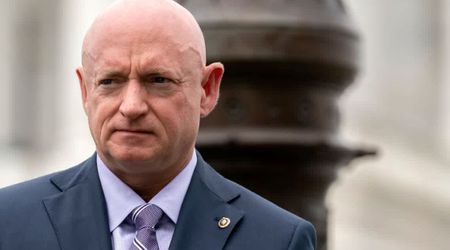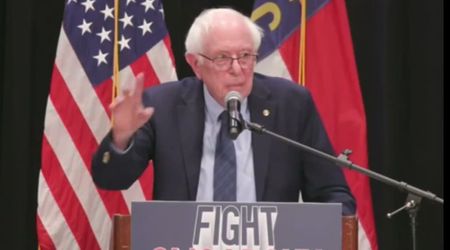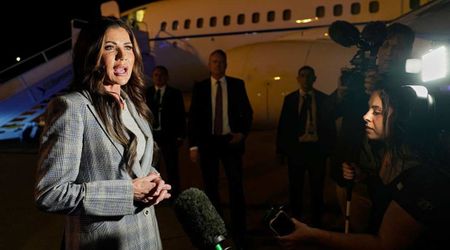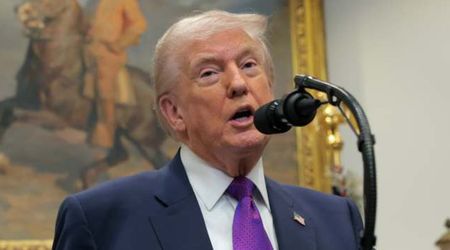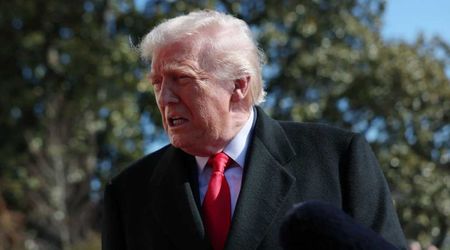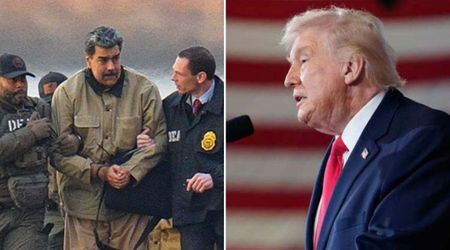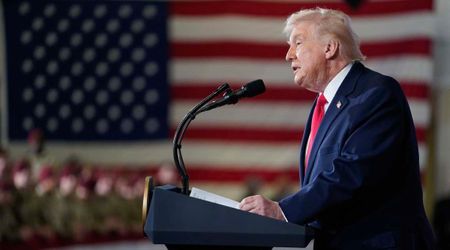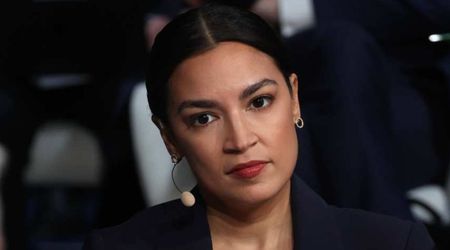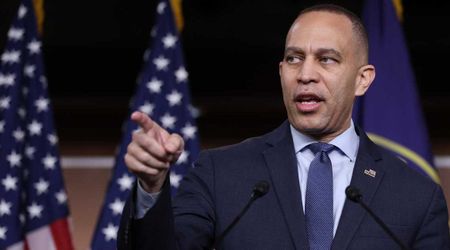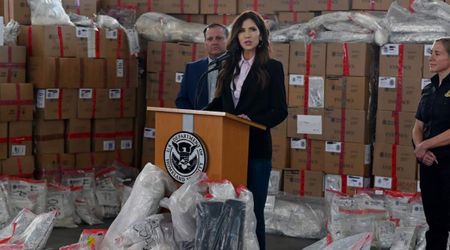Hush money trial: 9 key moments in Michael Cohen's testimony where he used Trump's own words against his ex-boss
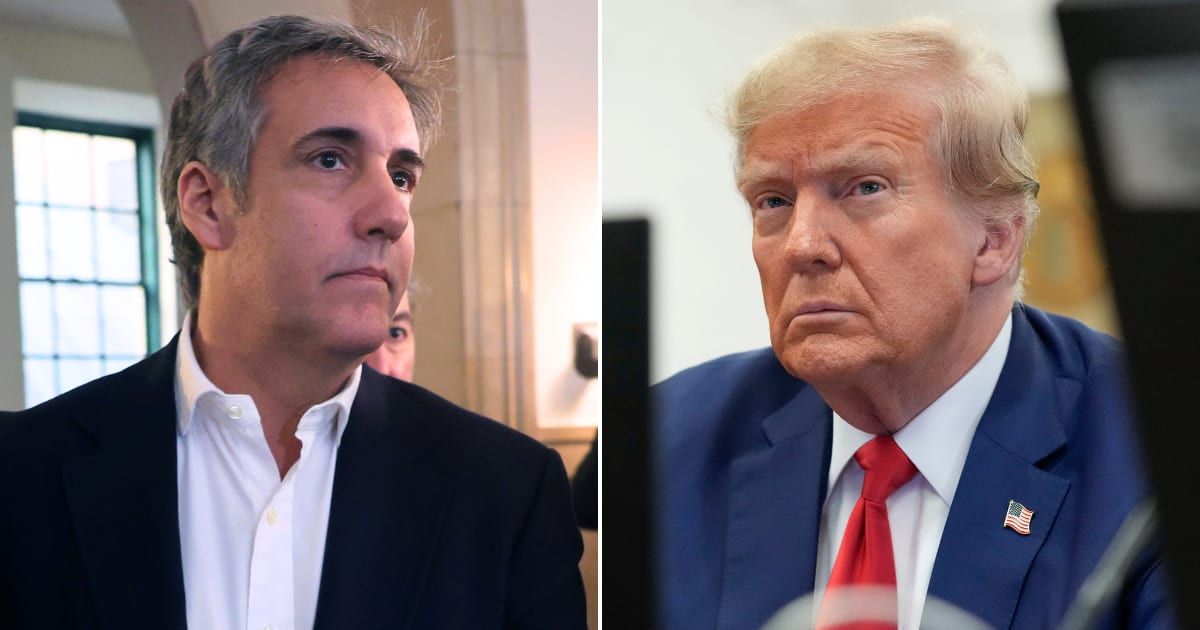
Michael Cohen's testimony: How Donald Trump's former 'fixer' used his own words against him

During Michael Cohen's testimony in Donald Trump's criminal trial, he revealed pivotal details about Trump's alleged involvement in the hush-money payments to Stormy Daniels, despite previous efforts to shield Trump's name from the controversy. Cohen, once Trump's attorney but now his adversary, recounted conversations where Trump was actively engaged in the scheme to silence Daniels before the 2016 election. The prosecution alleges Trump falsified 34 different documents, including signed checks, to conceal the $130,000 payment aimed at influencing the election outcome. While Trump's legal team blames Cohen for the scheme, the latter's testimony paints a different picture, depicting his former boss as fully aware and complicit. Throughout the testimony, Cohen delivered damaging quotes attributed to Trump, while the former president, seemingly disinterested, listened from the defense table. Following are nine key moments in Cohen's testimony when he inflicted damage on Trump by using his own words.
1. 'Just be prepared — there's going to be a lot of women coming forward'

During his testimony, Cohen revealed insights into Trump's presidential ambitions dating back to 2011. According to Cohen, Trump initially considered a presidential campaign in 2011 but deferred it to the "next election cycle." In 2015, Trump confirmed his intention to run for president, informing Cohen of his decision. Cohen quoted Trump cautioning him about potential repercussions: "You know when this comes out, just be prepared — there's going to be a lot of women coming forward." Within this context, Cohen detailed a meeting with David Pecker, the publisher of American Media Inc, at Trump Tower. The purpose was to strategize on managing media narratives surrounding Trump's candidacy. Cohen testified that Pecker offered to monitor negative stories about Trump and provide early warnings about potentially damaging revelations. Cohen quoted Pecker as saying that "he could keep an eye out for anything negative about Mr Trump and that he would be able to help us know in advance what was coming out and to try to stop it from coming out."
2. 'That's fantastic. That's unbelievable'

Following the meeting with Pecker, the collaboration yielded positive results for Trump's campaign. The National Enquirer published a series of articles portraying Trump favorably while launching sensational attacks on his opponents. These articles included claims such as Hillary Clinton wearing "very thick glasses" to fuel a conspiracy theory about a brain injury, Ted Cruz's father allegedly photographed with Lee Harvey Oswald, and Marco Rubio allegedly involved in a "drug binge" in a swimming pool. Cohen testified that Trump was ecstatic about the coverage, quoting him as saying, "That's fantastic. That's unbelievable." Pecker, too, was pleased with the outcome, as Trump's celebrity status aligned with the National Enquirer's target audience, primarily individuals purchasing magazines at grocery-store checkouts. Trump's awareness of Cohen's collaboration with the National Enquirer supports the prosecution's assertion that these efforts were aimed at bolstering the former's campaign. Personal matters, such as shielding Melania Trump from news of an alleged affair, were deemed secondary to the campaign's objectives.
3. 'Make sure it doesn't get released'

In June 2016, Cohen received a call from AMI informing him that Karen McDougal, a former Playboy playmate, was shopping a story about her alleged affair with Trump. Upon relaying this to Trump, Cohen testified that Trump's initial reaction was, "She's really beautiful." Cohen expressed concern about the potentially damaging story being circulated. Trump's response, according to Cohen, was direct: "Make sure it doesn't get released." Trump allegedly instructed Cohen to collaborate with Pecker and the National Enquirer editor to acquire the rights to McDougal's story and ensure its suppression. When Pecker returned with the cost to "control the story" amounting to $150,000, Cohen testified that Trump assured him, "No problem. I will take care of it."
4. 'Do it. Take care of it'

In a prelude to Trump's presidential aspirations, Cohen recounted an incident from 2011 when he intervened to remove an article from TheDirty.com involving Stormy Daniels and Trump. The gossip website had published an interview with Daniels discussing a liaison with Trump at a celebrity golf tournament in 2006, prompting Trump's desire for its removal. Cohen testified that when he informed Trump of his intention to "take care of it," Trump responded affirmatively, saying, "Absolutely, do it, take care of it." Cohen proceeded to threaten legal action against TheDirty.com's publisher, resulting in the article's removal from the website. However, despite Cohen's inquiries, Trump remained elusive regarding the veracity of his relationship with Daniels. When pressed, Trump "turned around and said that she was a beautiful woman" as he walked out of the room, per Cohen.
5. 'Women will hate me. Guys, they'll think it's cool'

Daniels had distanced herself from Trump's life between 2011 and much of 2016. However, just before the election, she reemerged dramatically, coinciding with the release of the infamous 'Access Hollywood' tape by The Washington Post. This tape, Trump believed, had damaged his standing with female voters. During this time, Daniels' lawyer, Keith Davidson, was in discussions with the National Enquirer regarding the rights to her story, which allegedly detailed a sexual encounter with Trump. Trump, according to Cohen, was furious about this development. He apparently fumed at Cohen, saying, "I thought you had this under control. I thought you took care of this." However, preoccupied with other aspects of his campaign, Trump instructed Cohen to "just take care of it." Cohen testified that Trump was aware of his poor polling with women and understood the potential harm Daniels' story could inflict on his candidacy. "This was a disaster. A total disaster. Women are going to hate me," Trump supposedly lamented to Cohen, adding, "This is a real disaster. Women will hate me. Guys, they'll think it was cool." In response, Trump ordered Cohen to collaborate with David Pecker to manage the situation. "Get control over this. Get the life rights," Trump directed Cohen. "We needed to control this from coming out."
6. 'Meet up with Allen Weisselberg and figure this whole thing out'
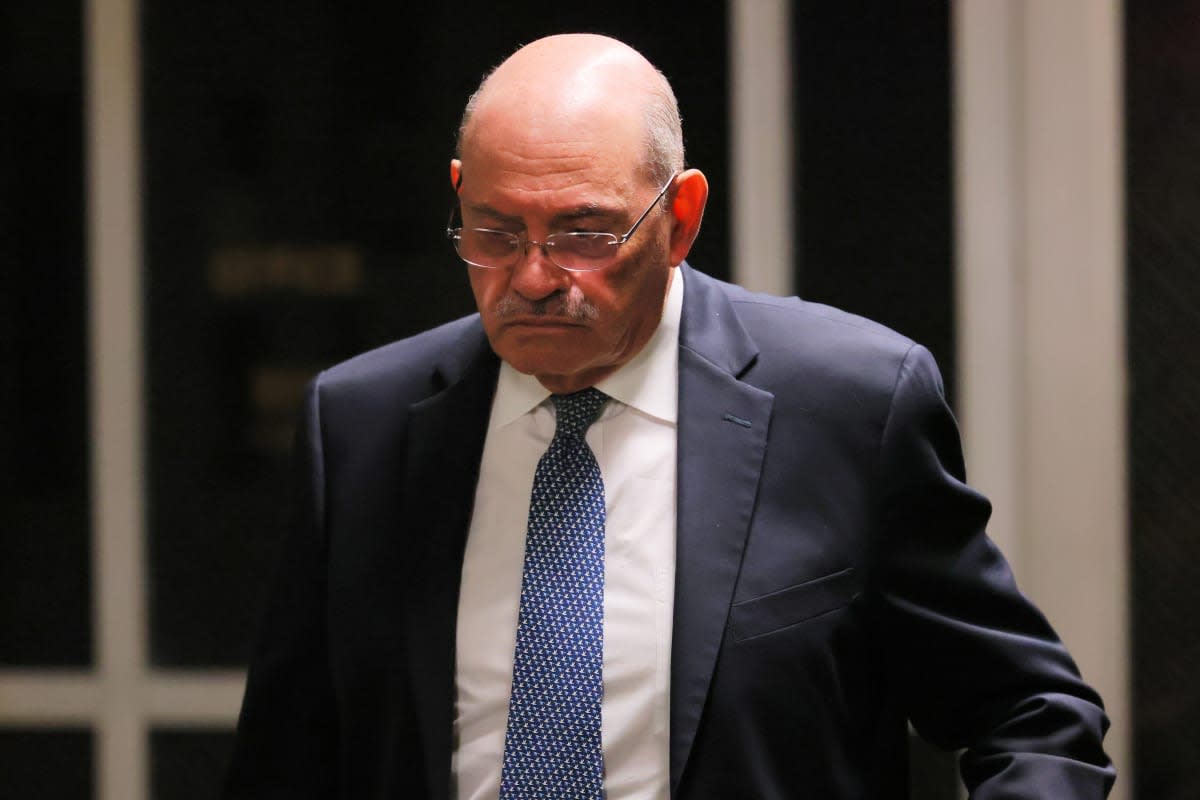
During his testimony, Cohen revealed a pivotal moment in mid-October 2016, when Trump instructed him to arrange a hush-money deal with Daniels. Trump specifically directed Cohen to involve Allen Weisselberg, who was the chief financial officer of the Trump Organization at the time. Cohen recounted Trump's words, "Meet up with Allen Weisselberg and figure this whole thing out." Furthermore, Cohen testified that Trump explicitly instructed him to proceed with the payment, saying, "Just pay it." Trump allegedly noted there was no need to prolong the situation, stating, "There's no reason to keep this thing out there."
7. 'If I win, it has no relevance because I'm president. And if I lose, I don't even care'

When it came down to issuing the payment, Trump was apparently reluctant to part with any money for Daniels. Cohen claimed that Trump's intention was to delay the payment until after the November 2016 election, believing it wouldn't hold significance by then. Cohen quoted Trump as saying, "If I win, it has no relevance because I'm president. And if I lose, I don't even care." It seemed Trump's focus was solely on the campaign, disregarding any impact on Melania. "He wasn't thinking about Melania," Cohen said. "This was all about the campaign." Ultimately, Cohen had to secure the funds through a home-equity loan and personally cover the payment. Records from the trial indicate that he wired the money to Daniels' lawyer just 11 days before the election.
8. 'Good. Good. Don't worry you'll get it back'

Upon learning that Cohen and Weisselberg would be covering the $130,000 payment to Daniels, Trump allegedly assured Cohen of reimbursement. Cohen recounted, "Allen and I spoke to Mr Trump, and we expressed to him that I was going to front the money for it." Trump, Cohen testified, responded appreciatively, saying, "Good. Good. Don't worry, you'll get it back." With Trump unwilling to directly foot the bill, this arrangement seemed the only means to silence Daniels and safeguard "the boss," according to Cohen. Weisselberg proposed sourcing the funds from various avenues, such as a golf-club membership payment or offering credit for a bar mitzvah or wedding. However, Cohen pointed out that utilizing Trump's money would contradict the objective of keeping Trump's involvement discreet. Cohen suggested Weisselberg pay instead, highlighting the CFO's substantial salary, but the latter declined. "Michael, as you know, I have my four grandkids at prep school," Cohen recalled Weisselberg as saying. "And I have summer camps I'm paying for them, and I just can't do it." Cohen, faced with no other option, agreed to cover the payment himself. "I ultimately said, 'OK, I'll pay it,'" Cohen told jurors.
9. 'Don't worry about that other thing'

Cohen recalled his frustration in December 2016 when Trump failed to provide him with his anticipated holiday bonus, leaving him seething. "I used quite a few expletives" in my complaint to Weisselberg, Cohen recounted to jurors. "I was, even for myself, unusually angry." Apparently, news of Cohen's discontent reached Trump, who was spending the holiday season at Mar-a-Lago in Florida. During questioning by prosecutor Susan Hoffinger, Cohen confirmed that Trump indeed contacted him while he was on vacation. After exchanging some strained pleasantries, Trump reassured Cohen, saying, "Don't worry about that other thing. I'm going to take care of it when I get back." Cohen further recalled Trump's promise, stating, "We'll take care of it when we all get back."

